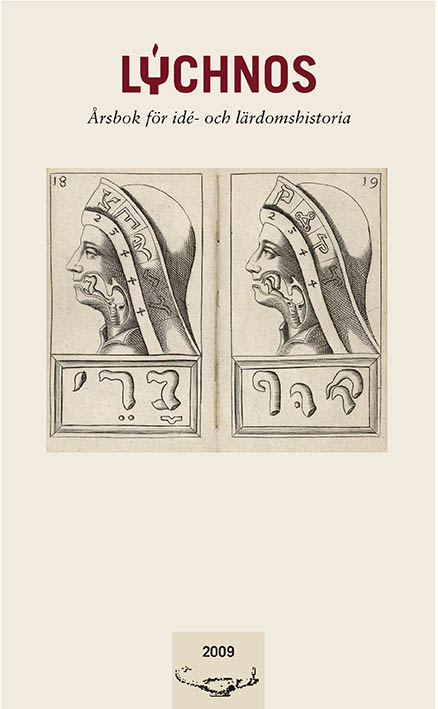Reading art, reading nature
How microscopic literature formed seventeenth-century readers
Abstract
This article discusses how two books on microscopical observations, Experimental Philosophy (1664) by Henry Power (1623–1668) and Micrographia (1665) by Robert Hooke (1635–1703) were related to by contem- poraries. These books were read by diverse readers who used microscopic observations in forming their own identities. Samuel Pepys (1633–1703), Margaret Cavendish (1623–1673) and Thomas Shadwell (1642 –1692) all read Hooke’s and Power’s books and in their responses one can discern some of the roles microscopy had in early modern English society. What attitude did these readers, who responded from their respective positions, have to the experiences in Micrographia and Experimental Philosophy?
Samuel Pepys read the books as a way of learning the art of microscopy. He sought to fashion himself as a gentleman through microscopic observations of nature. Margaret Cavendish did not relate to microscopy in the same way as Pepys. She used the books on microscopy in her philosophical critique of the experimentalist programme, a critique based on her seeing the microscopic picture as artificial. Thomas Shadwell’s play The virtuoso depicted the fictional experimentalist Sir Gimcrack. Where Pepys succeeded in balancing experimental practice with everyday responsibilities, Gimcrack was alienated from everyday life because he focused on the artificial world of lice, mites and weeds.
The article shows how the way these three readers related to the books on microscopy was influenced by their opinions on the microscopic experience as either natural or artificial. Furthermore, it argues that one can discern an interaction between the readers’ gender identities and their microscopic observations. In Pepys and Shadwell/Gimcrack’s case how their gentlemanliness was formed in relation to their microscopic observations, in Cavendish’s case how her critique of these observations gave her a position as a woman who published in natural philosophy.
Downloads
Publicerad
Nummer
Sektion
Licens
This work is licensed under a Creative Commons Attribution 4.0 International License. The copyright for the work published in Lychnos remains with the authors.


